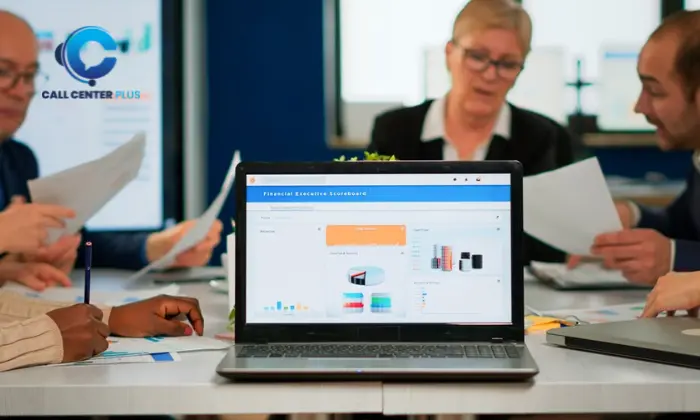In the ever-competitive landscape of digital marketing, lead generation plays a pivotal role in driving business success. While macro conversions—such as completing a purchase—are crucial, micro conversions serve as essential indicators of potential interest.
These smaller, incremental actions can significantly influence your overall conversion rates. In this article, we will explore innovative micro conversion ideas for lead generation.
You can read our related blog post, How to Optimize a Landing Page for Lead Generation here.
What Are Micro Conversions?

Micro conversions refer to the small, often subtle actions that users take on a website or platform, which indicate their interest and intent. Examples include signing up for a newsletter, downloading a free resource, watching a video, or filling out a contact form.
These actions are critical because they help to engage users who may not yet be ready to commit to a purchase, allowing businesses to nurture leads through the sales funnel effectively.
Why Focus on Micro Conversions?
- Nurture Leads: Micro conversions allow businesses to engage potential customers who are still in the consideration phase, building trust and encouraging them to take the next step.
- Track Engagement: Analyzing micro conversions provides valuable insights into user behavior, preferences, and the overall effectiveness of marketing strategies.
- Optimize Marketing Efforts: By focusing on these smaller wins, businesses can refine their marketing strategies and improve overall conversion rates, making them more effective over time.
Micro Conversion Ideas for Lead Generation
Here are several micro conversion ideas that can enhance your lead generation efforts:
Micro Conversion Ideas
| Micro Conversion Idea | Description |
| Offer Free Resources | Create valuable content, such as eBooks, guides, or templates, that requires users to enter their email addresses to download. This not only adds value for the user but also builds your email list. |
| Webinars and Live Demos | Host informative webinars that require registration. This approach provides insights to participants while allowing you to collect their contact information for future follow-ups. |
| Interactive Quizzes or Surveys | Engage users with quizzes that offer personalized results or insights in exchange for their contact information. Use Lead Generation Chatbots for more robust results. This interactive element can increase engagement and lead collection. |
| Social Media Engagement | Use social media polls, contests, or challenges to encourage participation. Not only does this engage your audience, but it can also lead to direct messages or comments that turn into leads. |
| Exit-Intent Popups | Implement exit-intent popups that trigger when users attempt to leave the site, offering discounts, free trials, or resources in exchange for their email addresses. These can be highly effective in capturing abandoning visitors. |
| Newsletter Signups | Encourage users to subscribe to your newsletter by highlighting exclusive content or updates. This not only keeps your audience engaged but also nurtures potential leads through regular communication. |
| Limited-Time Offers | Create a sense of urgency with time-sensitive promotions that require sign-up. Limited-time discounts or exclusive offers can motivate users to act quickly, increasing the likelihood of conversion. |
| Product Trials | Offer free trials, samples, or limited-time access to your product in exchange for contact details. This allows potential customers to experience your offering without commitment, increasing the chance of future sales. |
Unique Lead Generation Ideas
- Referral Programs: Implement a referral system where current customers can earn rewards for bringing in new leads. This not only incentivizes existing customers but also creates a network effect that expands your reach.
- Local Community Involvement: Engage with your community by sponsoring local events or hosting workshops. This face-to-face interaction can foster relationships and generate leads from a trusted source.
- Partnerships with Other Businesses: Collaborate with complementary businesses for cross-promotional lead generation. Sharing audiences can be a cost-effective way to reach new potential customers.
Lead Generation Ideas for Real Estate Agents
Real estate agents can leverage specific strategies tailored to their unique market needs:
- Virtual Tours: Offer immersive virtual property tours that require sign-ups. By providing a unique viewing experience, you can collect leads from interested buyers who might not be ready to visit in person.
- Local Market Reports: Create detailed neighborhood reports that provide valuable insights into local market trends, pricing, and amenities. Encourage sign-ups to receive these reports, establishing you as a knowledgeable resource while collecting leads.
- Home Valuation Tools: Provide free home valuations in exchange for contact information. Homeowners looking to sell will be eager to know the value of their property, giving you a direct line to potential sellers.
Conclusion
Focusing on micro conversions is essential for building a robust lead generation strategy. By implementing the ideas discussed in this article, businesses can effectively nurture potential customers, improve engagement, and ultimately increase conversion rates. Remember, every small action can lead to significant results over time, so embrace the power of micro conversions in your marketing efforts.
If you want to book our services or get related information, click on the contact button below.
FAQs
What are micro conversions?
Micro conversions are small actions that users take, indicating interest, such as signing up for newsletters or downloading resources.
Why are micro conversions important?
They help nurture leads, track user engagement, and optimize marketing strategies to improve overall conversion rates.
What are some unique lead generation ideas?
Unique ideas include referral programs, local community involvement, and partnerships with other businesses.
What are the average conversion rates by industry?
The average conversion rates for different industries include; E-commerce: 2-3%, Real Estate: 1-2%, B2B Services: 1-3%, Healthcare: 2-4%, Education: 5-10%.